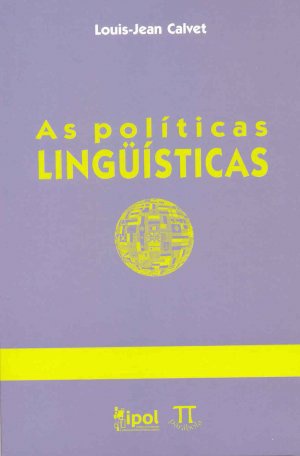Linguistic Policies
A brief overview abou linguistic policies in BrUm breve panorama sobre políticas linguísticas no Brasil
The relation between linguistic policies and threatened languages
Some of the most famous linguists, like David Crystal (2000), Robert Dixon (1997) and Michael Krauss (1992), predicted that:
- Of the 6.000 spoken around the world nowadays, 90% will be dead until the end of this century.
- It is estimated that 96% of these languages are spoken by only 4% of the world population (Bernard, 1996; Crystal, 1997).
- It means that big part of the cultural and linguistic diversity aorund the world is in the hands of a small number of people (UNESCO Ad Hoc Expert Group on Endangered Languages, 2003).

The field of linguistic policies covers much more than linguistic militancy.
RAJAGOPALAN, 2013, p.19
Calvet
According to Calvet (2007), the human intervention uppon languages has always existed, because there has always been who looked to legislate and dictate the correct usage of a determined language, "Likewise the political power always privileged this or that language, choosing to governate he State in one language or even impose to must people the language of a minority". (CALVET, 2007, p.11).

"The linguistic planning will act uppon the enviroment, to intervene on the power of languages, in its simbolic presence."
Calvet, 2007, p.73
'In vivo' and 'in vitro' policies
This therminology are both distinct forms of situational linguistic management. The first of them refers to the way that people solve the comunication problems that they confront on a daily bases. Quoted examples are the creation of approximate languages, the creation of vehicular languages or the promotion of a determined existing language
The 'in vitro' management is the approach of the problems referring to the usage of languages by the official power. This management occurs, according to Calvet, when linguistis analyze the situations of languages, describe them, raise hypotheses about the future of these languages situations and then the politics study these proposals, make choices uppon it then apply them.